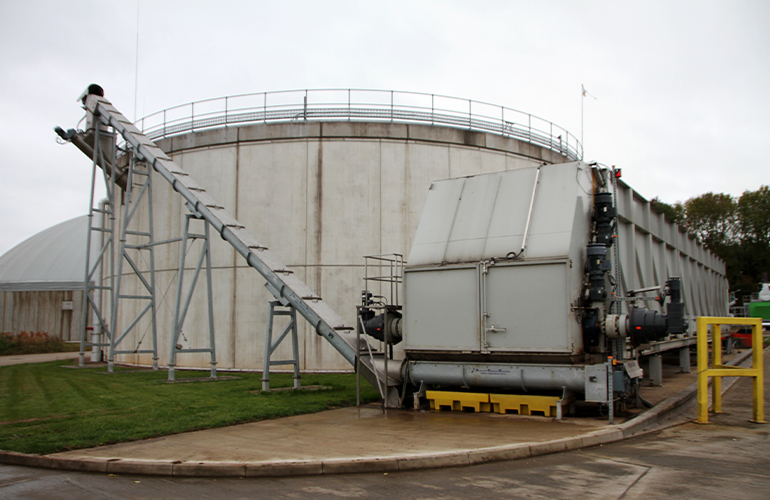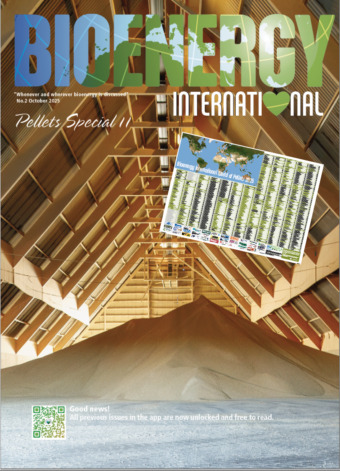On September 18, 2025, the European Commission approved the amendments to Germany's Renewable Energy Sources Act (EEG) of February 25, 2025, at the last minute under state aid law. Despite their great relief, the associations in the Hauptstadtbüro Bioenergie (HBB) point out urgently needed improvements and call for a transitional solution for those biogas plants that will not be able to benefit from the amendments in the short term.
Hauptstadtbüro Bioenergie (HBB) – Bioenergy Capital Office – comprises four national associations, German Bioenergy Association (BBE), German Farmers’ Association (DBV), German Biogas Association (FvB), and German Wood Energy Association (FVH), that pool their expertise and resources in the field of energy policy in the HBB. Combined, these associations represent the entire bioenergy sector, from farmers and foresters, plant and machinery manufacturers, energy suppliers, to operators and planners.
After months of uncertainty, the biomass package and, thus, important changes to the EEG have finally been approved by the EU under state aid law. This has paved the way for hundreds of biogas plants in the country to continue operating securely, emphasized Sandra Rostek, head of the HBB.
At the beginning of the year, a compromise was hastily negotiated across party lines in the biomass package with the participation of the Greens, the SPD, and the CDU/CSU, which, among other things, provides for a higher tender volume of 1,300 MW in 2025 and a higher flexibility surcharge of EUR 100 per kW of installed capacity.
According to the federal network agency, bids can now be submitted for a volume of 813 MW in the upcoming October tender.
At the same time, stricter requirements for the flexibility of biogas plants and a new remuneration system will be introduced.
The way is now paved for the short-term construction of around 3 GW of flexible power plant capacity from biogas. In the future, these power plants will not only contribute to security of supply in the electricity sector, but they will also support climate-friendly heat supply in rural areas, thereby making an important contribution to the heat transition, said Sandra Rostek.
Nevertheless, the associations in the HBB point out that the package needs to be significantly revised.
In the short negotiation period at the beginning of the year, it was understandably not possible to evaluate all aspects in a balanced manner, Sandra Rostek points out.
To get large parts of the industry on board, the current system would have to be converted to an electricity volume model in a second biomass package.
Furthermore, long-term continuity in the available tender volume would be essential for pushing ahead with new projects and providing flexible capacities.
Improvements must also be made in terms of grid connection. Very often, delays occur in project planning because operators willing to invest are denied a grid connection.
However, plants that were first connected to the grid in 2004 and 2005 and are now coming to the end of their 20-year period have been completely overlooked in the drafting of the biomass package – precisely those plants for which the short-term amendment to the EEG was actually intended to do something. Without an appropriate transitional arrangement, many of these plants will have no chance of meeting the requirements of the new EEG in time, said Sandra Rostek.
Call for de minimis bridging support
The bioenergy associations in the HBB are therefore recommending that the federal government provide de minimis-compatible, rapid bridging aid.
Since the funds budgeted would not be fully utilized due to the delayed biomass package, such a rescue measure could be financed without additional costs.
Furthermore, the aid could be implemented without any legislative changes or lengthy notification by the EU Commission.
Such a regulation enables plants to develop their concept in an orderly manner. In combination with the above-mentioned proposals for improvements to a biomass package, the industry can contribute up to 24 GW of secured capacity to the federal government’s power plant strategy.
Flexible biomass plants are the renewable speedboat of the German power plant strategy. Before a single fossil fuel gas power plant is even built, an additional 12 GW of biogas capacity can already be connected to the grid, concluded Sandra Rostek.



